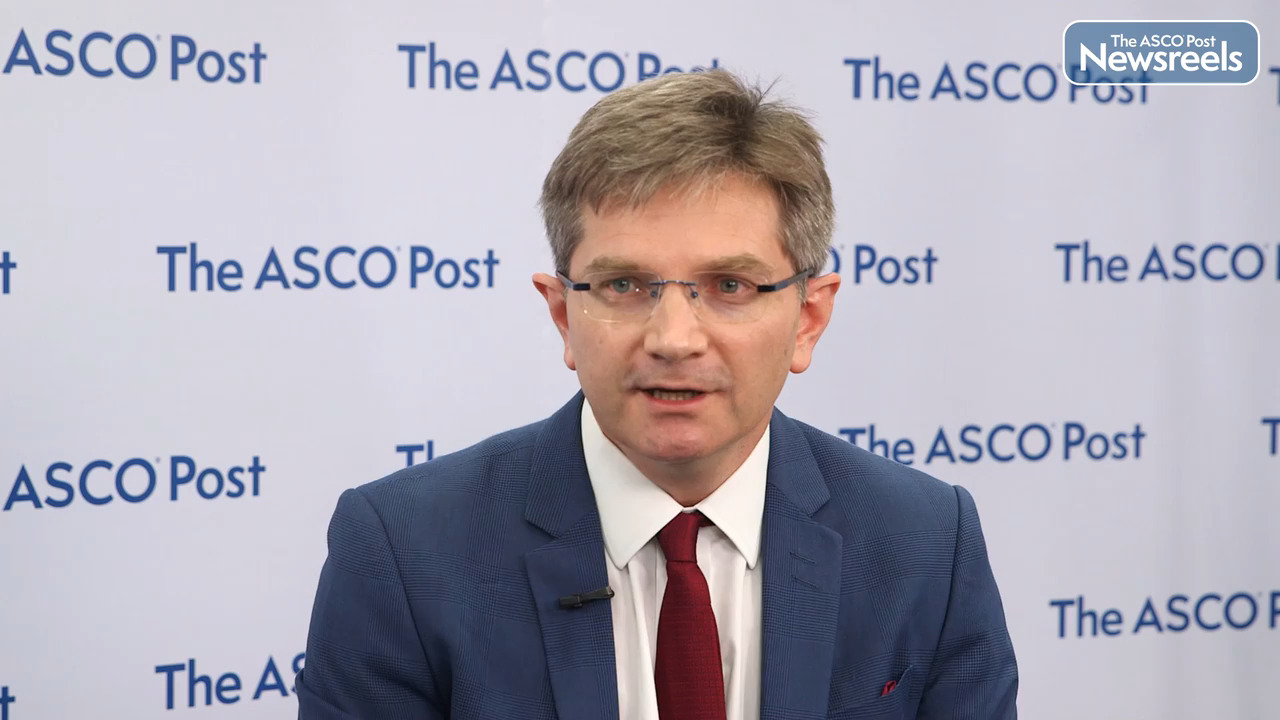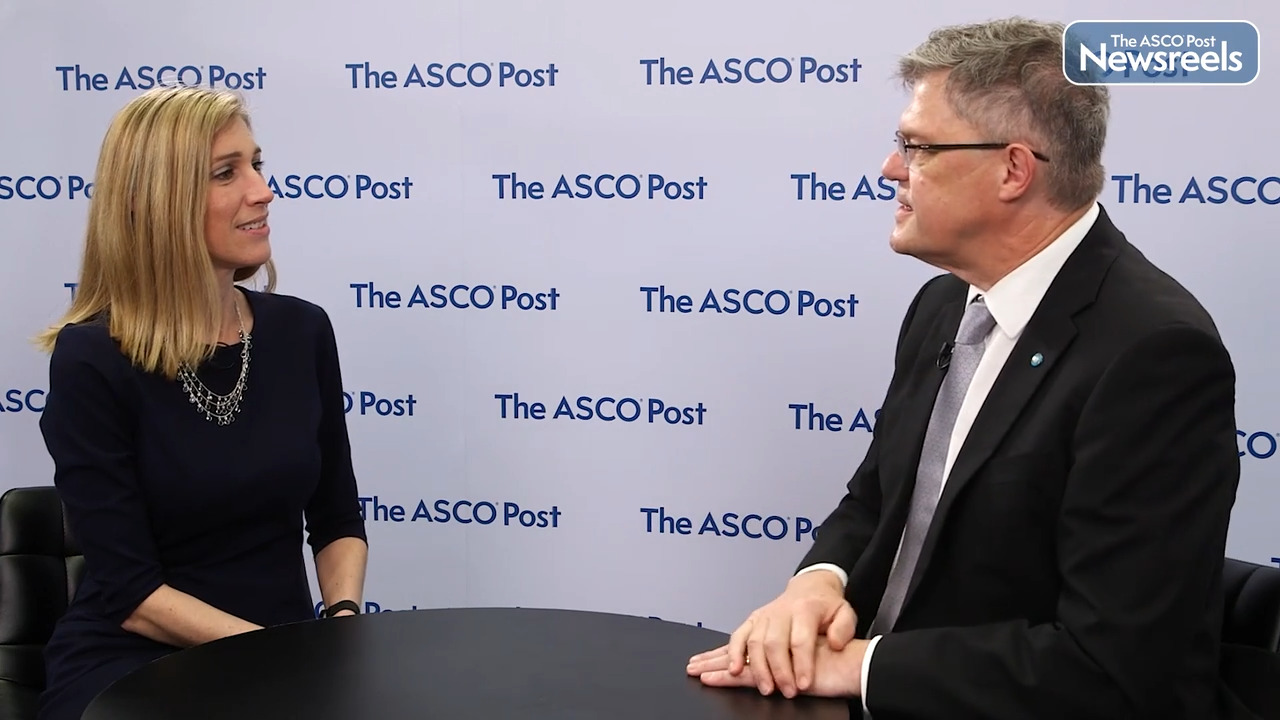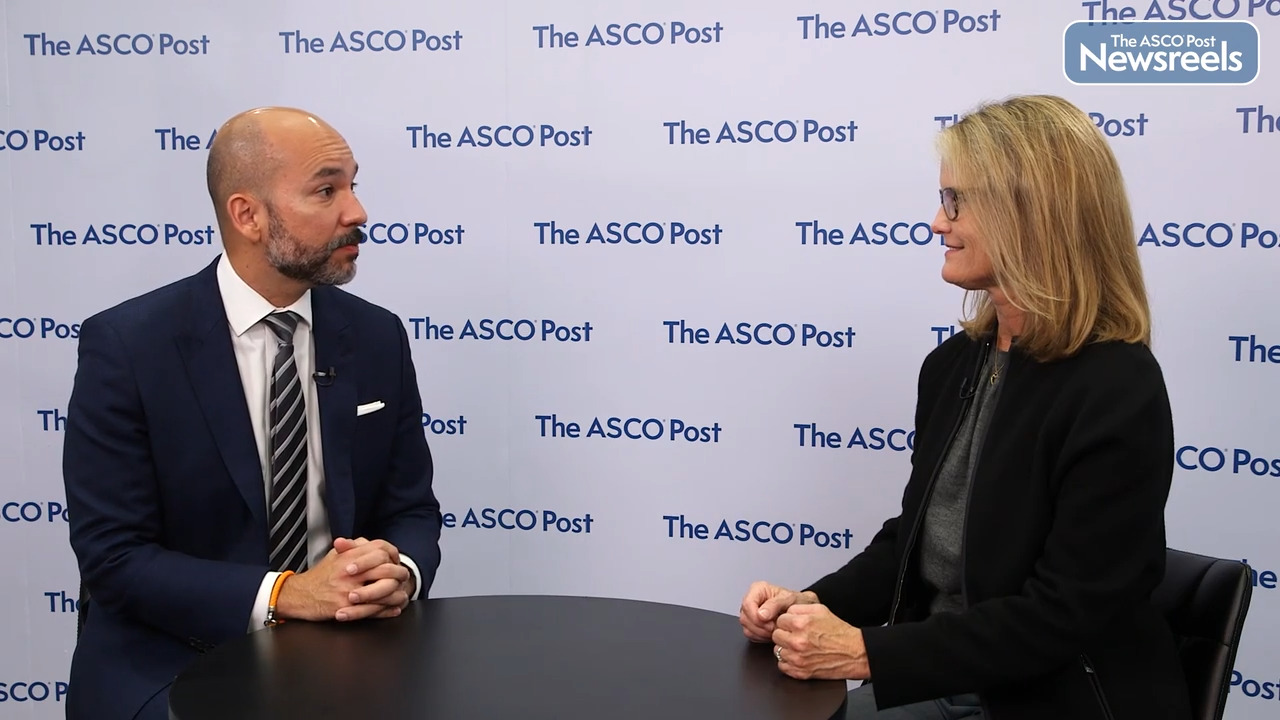Transcript
Disclaimer: This video transcript has not been proofread or edited and may contain errors.
The development of CDK 4/6 inhibitors in advanced breast cancer have really been a hallmark advance for the management of that group of patients. The first CDK 4/6 inhibitor was palbociclib, based on the PALOMA-1 study, which demonstrated a significant improvement in progression-free survival for that population. Since that time, there's been seven randomized studies with CDK 4/6 inhibitors, which have confirmed that observation. The PALOMA-2 study was the confirmatory study with palbociclib and letrozole versus placebo and letrozole, whose primary endpoint was to improve progression-free survival. And we demonstrated that, and that has served for the global approval of palbociclib in this population of patients. Now we are presenting the overall survival data from that study. This has been long awaited and with seven and a half years of follow-up, we're showing that there is a numerical improvement in overall survival, but this does not reach statistical significance. Really, in the context of advanced breast cancer, we have seen that as a class, CDK 4/6 inhibitors have improved overall survival. Specifically in PALOMA-2, there were some challenges that limits our assessment over overall survival. Specifically, we had about a third of the patients that had missing data for overall survival at the time of our analysis. Much of that was from patients withdrawing consent, as well as patients lost to follow up. We did demonstrate though, in those groups or subgroups of patients where the dropout was less pronounced. And actually there was also a disproportionate dropout in the control arm versus the treatment arm, so when we looked at subgroups where the dropout was a little closer, we did see that there was a trend towards an improvement in overall survival with palbociclib and letrozole versus the control arm of letrozole alone. The other thing to note is PALOMA-2 included about 20% of patients who had a disease-free interval of less than one year. And when we look at the largest group of patients in our study, which are those had a disease free interval of greater than 12 months, we actually see quite significant improvement in overall survival, given it's a subgroup analysis and is being looked at retrospectively. There was also a pre-planned analysis, combining data from PALOMA-1 and PALOMA-2. And in that analysis, we see again, a strong trend towards improvement in overall survival with palbociclib. And when we look again at this group of patients who had a long disease-free interval greater than 12 months from their adjuvant treatment, again, a very strong trend towards improving overall survival. So the take home message is PALOMA-2 met its primary endpoint of improving PFS, improved objective response rate. It has maintained quality of life. And with seven and a half years of follow-up, there's no new toxicity, there's no cumulative toxicity, and when we look at the overall survival for the whole population of patients, we see that it's over 50 months, which is really striking and tells us that the incorporation of CDK 4/6 inhibitors into the management of these women is really changing the natural history of this subtype of breast cancer.





